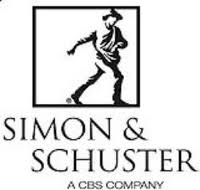Changes in Publishing: Anything in Them for Authors?
Biff Barnes
What a month for the publishing world!
On October 29, the NY Times reported that, “The book publishing industry is starting to get smaller in order to get stronger.” Two of the giants Penguin owned by Pearson PLC and Random House owned by Bertelsmann had merged in a move that “…will create the largest consumer book publisher in the world, with a global market share of more than 25 percent…”

The merger followed a July move by Penguin into the lucrative self-publishing market when it purchased the dominant provider in that market, Author Solutions. At the time, Author Solutions CEO Kevin Weiss said, “That means more opportunity for authors and more choice for readers.”
We were, and remain skeptical. The reasons are outlined in our post Writers Beware: Penguin Buys Author Solutions.
We were equally skeptical last week when the NY Times reported that Simon and Schuster another of the big-6 (now big 5) publishing houses had signed an agreement with Penguin and Author Solutions to form a self-publishing imprint Archway Publishing.

USA Today reported that Carolyn Reidy, president and chief executive officer of Simon & Schuster, said, “Self-publishing has become a viable and popular route to publication for many authors, and increasingly a source of content for traditional publishers. We’re excited that we’ll be able to help more authors find their own path to publication and at the same time create a more direct connection to those self-published authors ready to make the leap to traditional publishing.”
Okay, the self-publishing ventures make business sense from the standpoint of the publishers faced with the challenges created by Amazon, ebooks and the self-publishing revolution. And it’s good business for the publishers to tout the benefits of what they are offering to writers. But do the new self-publishing partnerships really offer anything to authors?
Archway’s website describes five benefits to authors: concierge service, tailored packages, excellence in design, unique services, and opportunity for discovery. It is the latter that may be the real hook. It is after all the carrot that Reidy held out in her announcement.
The fact is that might apply to only a handful of authors. The experience of most people self-publishing with any of the existing Author Solutions imprints has been considerably less rosy. Our recent post, Self-Publishing Horror Stories describing conversations with authors who had just done book signings at the Author Solutions booth at the Miami Book Fair International tells that story. A procession of authors reported issues with rights to their books, problems communicating with editors, and most of all failure by the companies to market their books. They felt that they had been promised things by Author Solutions that they had not received.
We know that when people Google self-publishing the names associated with Author Solutions – Xlibris, Author House, iUniverse, Wordclay and now Archway - will show up at the top of the search results and dominate online advertising. We can only advise people considering self-publishing to become knowledgeable before signing on with anyone. Read the fine print of the company’s contract. Shop around looking for better options. Most of all consider becoming a true self-publisher who doesn’t sign up for a package of services he may or may not need but instead hires freelancers for only the services he needs, including marketing.
ADDENDUM: Add Hrlequin to the list. The romance imprint is the latest to announce a self-publishing deal with Author Solutions. The Self-Publishing Review reports that it will be called Harlequin Horizons.